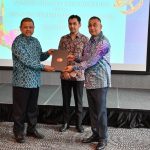By The Malketeer
In the vibrant world of entertainment tourism, Malaysia stands as a paradoxical case study. Blessed with stunning landscapes, diverse cultures, and a rich history, the country holds tremendous potential to become a premier destination for concerts and live performances in Southeast Asia.
Yet, stringent government regulations and the rising influence of religious parties have consistently hindered its ability to capitalise on this lucrative industry.
In 2023 alone, Malaysia missed out on over RM1 billion in potential entertainment tourism revenue, a staggering loss attributed to the cancellation of several high-profile concerts, according to a report published in Singapore’s Straits Times of March 26, 2024.
Renowned artists like Indian singer Karthik and American rapper Lil Pump were among those whose performances were scrapped due to bureaucratic red tape and protests from religious groups.
The impact of these cancellations reverberated beyond the music industry. Concertgoers from overseas who would have contributed significantly to the tourism economy were deterred, resulting in a substantial loss in revenue and tax contributions.
Balancing Cultural Sensitivities and Economic Growth
While neighbouring countries like Singapore seized opportunities to host international superstars like Taylor Swift, Malaysia found itself struggling to navigate the delicate balance between cultural sensitivities and economic growth.
The root cause of Malaysia’s struggle lies in its cumbersome regulatory framework and the influence of conservative voices within the political landscape.
Onerous regulations imposed by agencies like PUSPAL (Central Agency for Application for Filming and Performance by Foreign Artistes) create unnecessary hurdles for event organisers, deterring them from staging shows in the country.
The introduction of guidelines restricting performances deemed to breach cultural norms, such as cross-dressing and displays of affection, further exacerbates the problem.
The narrative is not merely about missed economic opportunities but also about the clash between tradition and modernity, conservatism, and progress.
Political Posturing is Undermining Entertainment Tourism Potential
While Malaysia boasts world-class venues like the Bukit Jalil National Stadium and competitive production costs compared to its neighbours, the restrictive atmosphere created by political posturing undermines its attractiveness as a concert destination.
Moreover, the perception propagated by politically motivated parties that Malaysia is not conducive to live entertainment further exacerbates the challenge.
Acts that have found success elsewhere in the region, such as British rock band Coldplay, face opposition from conservative groups, leading to debates over cultural values and freedom of expression.
The situation is starkly contrasted by Malaysia’s regional counterparts like Singapore and Indonesia, where more streamlined approval processes and less stringent regulations have fostered thriving entertainment industries.
The stark difference in approach underscores the need for Malaysia to reassess its strategies and prioritise economic growth without compromising its cultural and religious values.
As the world embraces the transformative power of the entertainment industry, Malaysia finds itself at a crossroads.
Will it continue to be shackled by red tape and religious concerns, or will it embrace a more progressive approach to unlock its full potential?
Promoting a More Inclusive Cultural Narrative
The answer lies in the hands of policymakers, who must strike a delicate balance between tradition and modernity, ensuring that Malaysia’s cultural vibrancy remains intact while fostering an environment conducive to economic growth.
Malaysia’s journey towards becoming a global entertainment hub is fraught with challenges, but it is not an impossible feat.
By addressing regulatory bottlenecks, fostering dialogue between stakeholders, and promoting a more inclusive cultural narrative, Malaysia can reclaim its position as a premier destination for entertainment tourism in Southeast Asia.
The time for action is now, lest Malaysia continues to miss out on the countless opportunities that lie ahead.
MARKETING Magazine is not responsible for the content of external sites.









